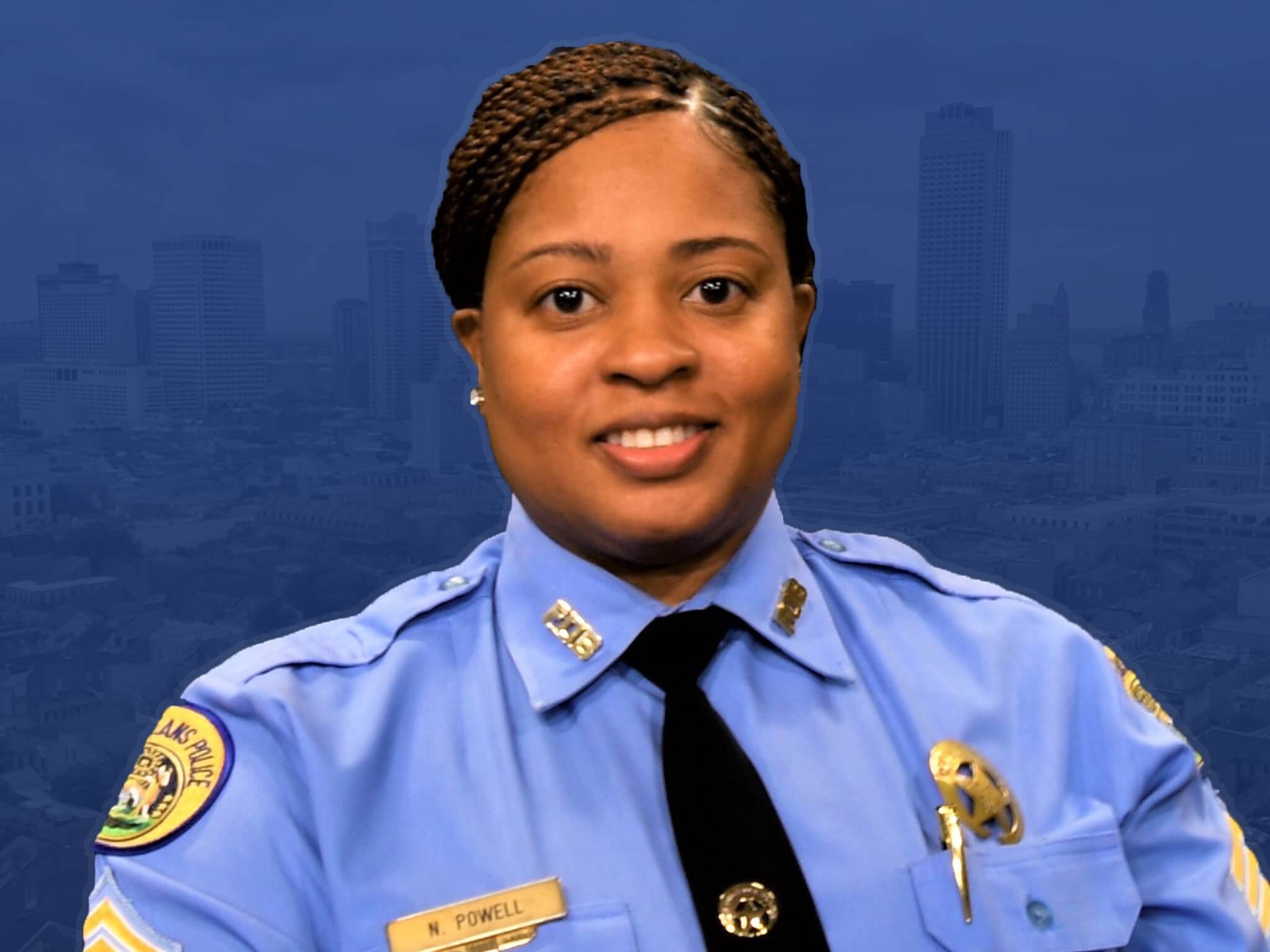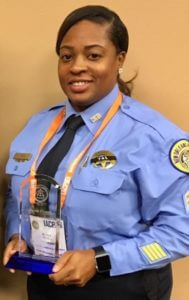Sergeant Nicole Powell
New Orleans Police Department
New Orleans, Louisiana

Why did you become an officer?
I was working as a dispatcher for the Hattiesburg Police Department when Lt. Ben McNair told me I would make a great police officer. I was not thinking about a career in policing. At the time, the department had only two or three women officers. He told me that I would make a great officer. A short time later, unfortunately, he passed away. However, his words resonated with me, and I later joined the New Orleans Police Department. He saw something in me that I didn’t see in myself, but more importantly, he recognized the need for more women officers within the department. I will forever be grateful to him.
What motivates you to succeed?
My motivation is to provide a pathway and opportunities to other women within the police department throughout their careers. I want to be that cheerleader for others who continue to promote through the ranks. It takes all of us to be a force to make changes within the policing profession as we continue to advance women in policing. I want to be a change agent and provide the support, encouragement, and guidance that I did not have in the beginning of my career.

Sgt. Powell was a 2017 International Association of Chiefs of Police “40 Under 40” award recipient.
What’s your most memorable moment on the job?
I have few memorable moments. The first was being selected as a National Institute of Justice Law Enforcement Advancing Data and Science Scholar. The LEADS scholar experience opened the pathway for me to meet some remarkable, powerhouse women of all ranks in policing, as well as in academia.
The second moment was meeting the first African-American woman Deputy Chief at NOPD, Yvonne Bechet. I was able to gain so much advice, encouragement, guidance, and wisdom from Chief Bechet prior to her passing last year.
The third moment was attending and completing the Loyola University Women’s Leadership Academy. Through the Women’s Leadership Academy, I was able to meet some of the most amazing women from various professions in the City of New Orleans.
Through these moments, I realized that I was not alone in my journey. I have a network of support from women in various professions, both locally and across the country. This is what helping each other advance in our respective professions is supposed to look like. This is who I want to be for the next woman police officer or police recruit.
I would be remiss if I didn’t mention Superintendent Shaun Ferguson, Commissioner Michael Harrison, Deputy Chief John Thomas, Deputy Chief Arlinda Westbrook, Deputy Chief Rannie Mushatt (ret.), and Sergeant Cyril Davillier (ret.). They were my biggest supporters at NOPD. They cultivated my talents, got me out my comfort zone, and challenged me to be the leader I am today.
Deputy Chief Mushatt saw my potential as a female sergeant, and recognized me as a future leader of this department. He, along with Deputy Chief Thomas, invested in my development and understood the broader need for the department to develop future female leaders. Superintendent Ferguson, Deputy Chief Thomas and Deputy Chief Westbrook are all committed to the advancement of women police officers of all ranks within NOPD, as well as recruiting more women to the department.
How we’re changing policing
The 30×30 Initiative is a coalition of police leaders, researchers, and professional organizations committed to advancing and supporting the representation, experiences, and well-being of women at all levels of law enforcement, both in the U.S. and beyond.
Research shows that women play a crucial role in building community trust, de-escalating conflict, and improving public safety outcomes, with evidence linked to reduced use of force and enhanced relationships with the communities they serve. However, women represent less than 14% of sworn officers and 20% of recruits in state and local law enforcement agencies. Additionally, about 40% of the approximately 18,000 law enforcement agencies in the U.S. have no full-time women officers (Source: Bureau of Justice Statistics).
We are collaborating with hundreds of agencies to make law enforcement a profession where qualified women who are drawn to it feel welcomed and supported while ensuring agencies address their unique needs and foster their success.